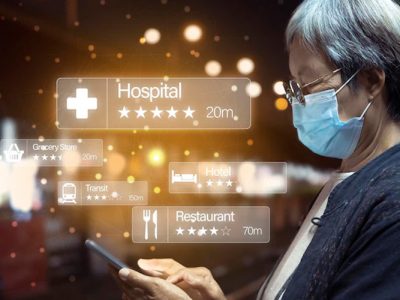
Nursing employment will grow more appealing in 2022 and patient experience will be a major factor in decision-making
There are 28 million nurses globally, according to the World Health Organization (WHO). Nonetheless, this figure is insufficient. Nurses are in low supply across the world, and by 2030, 6 million additional positions will be needed to satisfy everyone’s healthcare needs. Nurses and their leaders should be aware of the shifting trends in the field as the nursing shortage worsens and the healthcare environment changes. Know about the 10 nursing trends we expect to see in 2022 and beyond by continuing to read.
The Continuous Delivery of Care
According to data by Stoltenberg Consulting, 52 percent of healthcare CIOs selected patient engagement technology as a major priority for the business in 2021. As the trend toward holistic treatment expands, with nurses leading the way, this will continue into the new year. Patients want more from their healthcare, such as actionable information and improved communication, which is driving demand for digital-first interactions and on-demand services. Nurses will be crucial in linking patients with their preferred care environment.
The Growing Role of Nurses in Informatics
Nurses have overseen command centers and acted as go-betweens for artificial intelligence installations. Nurses will continue to play a key role in acquiring and utilizing data in clinical processes, as regulators emphasize healthcare openness and interoperability. Because digital transformation necessitates more than simply EHR upgrades, roles such as chief nursing officer and chief nursing informatics officer, which incorporates both clinical and technology components of nursing are critical.
The Increased Reliance on Streamlined User Interfaces
An increase in administrative load takes time away from patients, and fatigue connected to a difficult EHR is widely established. For interactions, the zero-user interface concept tries to eliminate screen time by relying on human gestures such as vision or voice cues. Natural language processing solutions, like Nuance’s dictation service, are being used in healthcare to progress toward a zero UI approach.
Traveling Nurses
Last year’s events demonstrated how much our society relies on traveling nurses to address changing requirements. Thousands of nurses flocked to COVID-19 hotspots to help with the influx of patients. Nursing was becoming a more travel-friendly profession before the epidemic, as more sections of the world grew similar. Nurses who love adjusting to new work situations and traveling to new locations while caring for patients are in high demand.
Self-Care for Nurses
Nurses are qualified caretakers, yet they might lose sight of themselves at times. Self-care is a planned activity that we engage in to maintain our physical, mental, and spiritual health. Self-care deprivation may lead to mistakes, tiredness, and burnout, all of which are costly to patients, nurses, and the healthcare system. Many nurses have placed self-care on the backburner as a result of the pandemic’s stress and increased workloads. Self-care should be increased, not decreased, during times of heightened stress. Every nurse’s definition of self-care is different. A self-care strategy should be detailed, quantifiable, doable, actionable, and time-bound.
Increasing Need for Nursing Educators
The wage disparity between nursing professors and practicing nurses, which ranges from $20,000 to $30,000, has led to more nurses practicing rather than teaching. Nurses are choosing careers in hospitals, industries, and the military because they provide better income. Nurse educators will need to develop a strategic strategy to encourage them to teach the next generation of nurses.
Nurses will Need to be Technology Savvy
Every day, new medical technology is introduced to the market. To improve patient care, nurses must adapt to new technology. Technology is used to cut down on administration time and improve accuracy, all while keeping clinician satisfaction and the patient experience in mind. Nurses are required to utilize computers to record and acquire patient data, as well as seek up treatment alternatives as necessary. Workstations on wheels that are intuitive are becoming increasingly popular.
Patients will become More Educated
Individuals are getting more knowledgeable and taking control of their health than ever before. Patients are aware of the need for a healthy diet and regular exercise. They may learn about immune-boosting practices physical fitness, and listening to their bodies by searching the internet. The ability of nurses to take this information and interact with better-informed patients is a difficulty.
Online Nursing Education Programs will become More Popular
Nursing has a high level of job stability and a significant desire for additional education due to the great demand for the profession. More schools and institutions, particularly in nursing, are offering online education programs. Nurses may earn a degree while working full-time by enrolling in an online program, which allows them to access higher education on their own time.
The Rise of Telemedicine
Nurse work automation and faster access to patient care have resulted from the growing usage of telemedicine, as well as innovative telehealth and chatbot technologies. Patients may access their papers and physicians from home with telehealth technology, allowing them more control over their health care and the opportunity to feel comfortable in their own homes. Test results, prescription refill requests, and appointments may all be entered into online portals. Virtual appointments may be made with doctors or nurses, saving time for both patients and physicians.



















